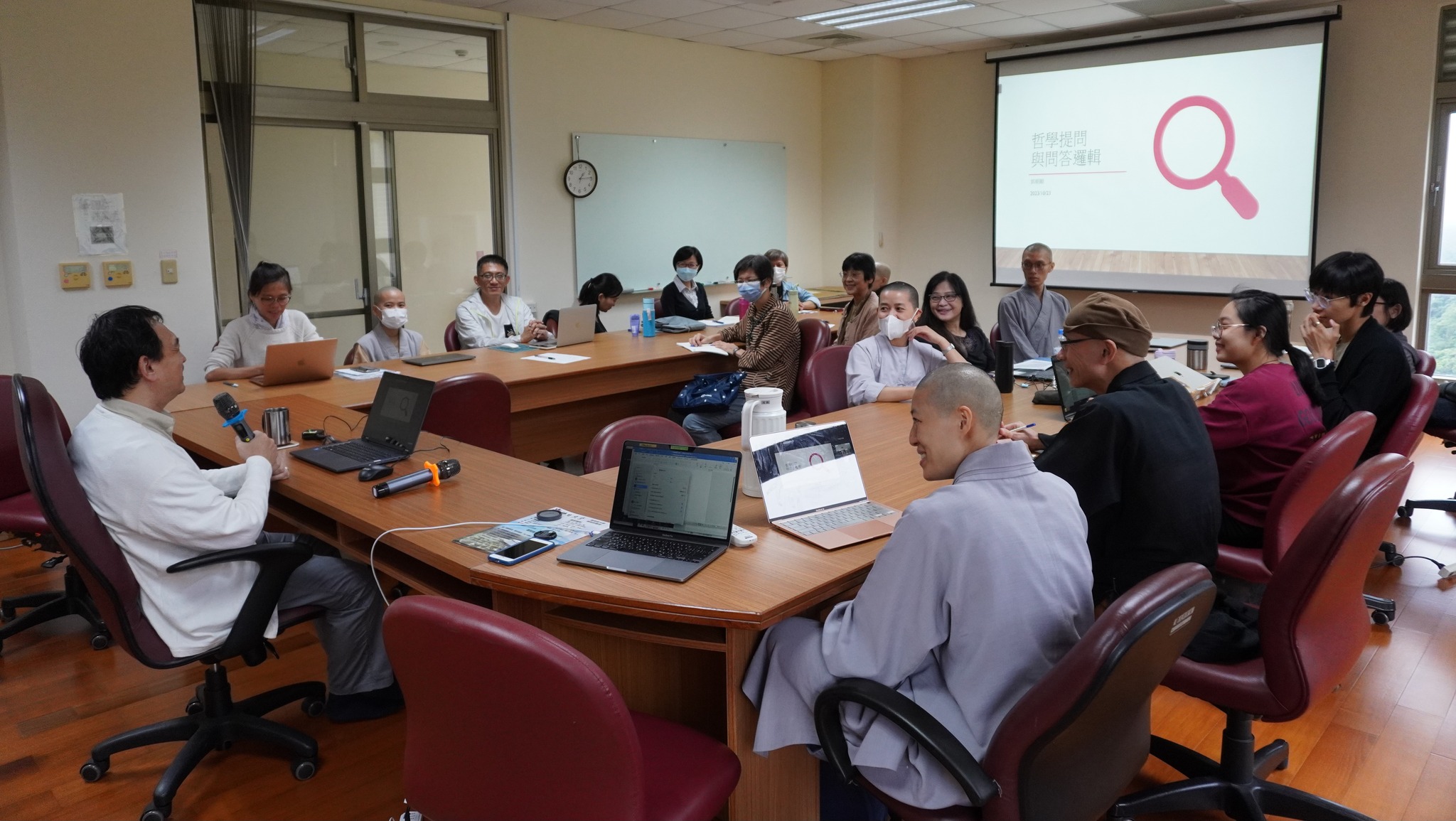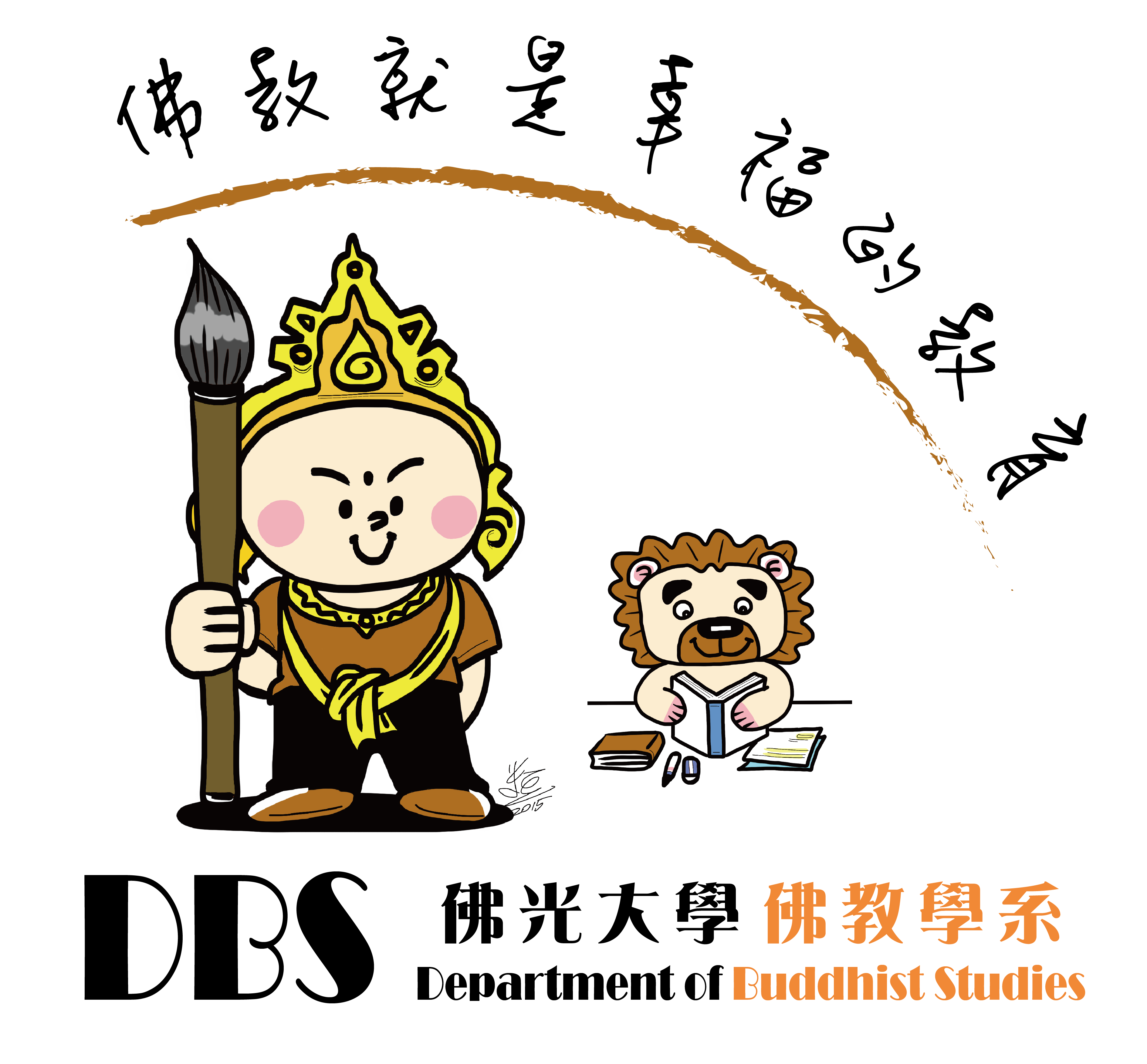
Professor Kuo began his talk by inspiring the students with the idea that the path of learning is a long journey, and finding joy in the process of studying and researching is crucial for sustaining one's motivation. He emphasized that pursuing Buddhist studies offers unique opportunities and resources compared to other disciplines, particularly in the form of scholarships provided by Buddhist organizations.
Reflecting on his own academic journey, Professor Kuo shared his transition from the Department of Philosophy at Huafan University to teaching in the Department of Buddhist Studies at Fo Guang University when he turned fifty. He continually contemplated and adjusted his teaching mission, focusing on providing students with philosophical knowledge and attitudes rather than solely training them to become philosophers. This approach aimed to deepen their understanding of Buddhist studies, given its interdisciplinary nature.
Furthermore, Professor Kuo highlighted that philosophy serves not only as a specialized research method but also plays a broader role in contemplating fundamental, essential, and foundational questions. Examples of such questions include ethical inquiries like "What is goodness?" and religious philosophical questions such as the existence of God.
Professor Kuo outlined six key characteristics of "philosophical thinking," with the foremost being the awareness of one's own ignorance. He also analyzed three levels of philosophical research: the level of the history of thought, the history of philosophy, and philosophical problems.
To illustrate the process of philosophical inquiry, Professor Kuo discussed topics in Chinese Buddhist philosophy, including "ethical order and liberation in Nirvana" and "the extinction of gods, the non-extinction of gods, and the multiple bodies of the Buddha." He demonstrated how philosophical questions are initially posed and organized, how the questioning and answering process unfolds, and how reflection on these questions occurs. He emphasized that all forms of knowledge possess a question-and-answer structure, and the more questions one can answer deeply, the more solid their knowledge becomes. Academic breakthroughs, he noted, stem from new questions or answers.
In conclusion, Professor Kuo generously shared online resources such as "Chinese Philosophy Encyclopedia," "Stanford Encyclopedia of Philosophy," and "Internet Encyclopedia of Philosophy (IEP)" with the students.
After the event, students shared their reflections:
- One student expressed gratitude for Professor Kuo's sharing of his lifelong learning experiences. They recognized the importance of rigorous inquiry and understanding the significance of "questioning" in academic research and paper writing.
- Another student, despite coming from a background in Chinese literature, realized the universal necessity of rational thinking and reflective questioning in all fields.
- A third student found Professor Kuo's repeated emphasis on the essence of a thesis being the response to a question profoundly impactful. They also appreciated the reminder that the process of writing a thesis involves continuous revision and reflection, leading to comprehensive results.

 College and Department of Buddhist Studies, FGU
College and Department of Buddhist Studies, FGU